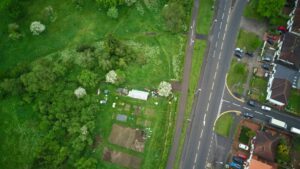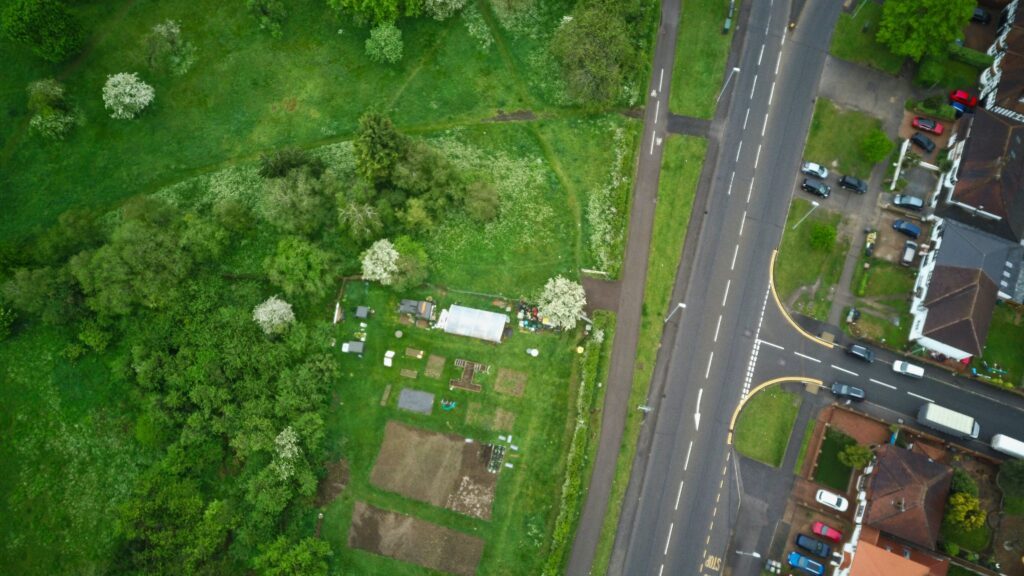
Photograph by Altaf Shah: Artistic Commons
Resolution in Michigan case might have massive affect on future drone regulation
By DRONELIFE Function Editor Jim Magill
An obscure authorized case involving a zoning dispute in rural Michigan might have vital nationwide affect on the rights that authorities regulators have to make use of drones to pursue enforcement actions.
The case, Lengthy Lake Township vs. Maxon, additionally raises necessary points relating to property house owners’ Fourth Modification rights to be free from illegal searches, stated Brent Skorup, a senior analysis fellow on the Mercatus Middle at George Mason College.
“It’s turn into way more than a drone case. It’s now coping with a reasonably novel query for many courts,” Skorup stated in an interview.
On the coronary heart of the case is the query of whether or not a regulatory company can use photos obtained in drone overflights over non-public property as proof because it seeks a civil enforcement motion in opposition to the property proprietor. A second query is: if the courts rule that the drone photos had been obtained illegally, can the photographs nonetheless be utilized in a civil case filed in opposition to the property proprietor?
“It is a query with nationwide implications, significantly as increasingly more municipalities and police departments use drones. However this goes past drones for routine civil investigations, and that might embody issues like youngster protecting providers,” Skorup stated.
The case, which works again about one and a half many years, entails an enforcement motion initiated by the Lengthy Lake Township zoning authority in opposition to Todd and Heather Maxon, who personal a bit of property in that northern Michigan neighborhood.
The municipality had a cause to imagine that the Maxons had been working an unpermitted salvage yard, by storing too many junked automobiles on their property, Skorup stated. In 2008 Lengthy Lake Township reached a settlement with the Maxons during which the property house owners agreed to not add to the variety of disabled automobiles on the property.
In an effort to guarantee compliance with the settlement, town employed an area drone operator to fly above the Maxons’ property, and acquire photographic proof as to the variety of automobiles there.
“With these pictures as proof town introduced one other enforcement motion in opposition to the Maxons a few years in the past. The Maxons have fought the enforcement and amongst different issues have alleged that as a result of town didn’t search a warrant earlier than getting the drone pictures this was a constitutional violation,” Skorup stated.
Attorneys for the property house owners argued that the drone-captured photos had been obtained illegally, and due to this fact ought to be excluded from use within the case. Illegally obtained proof is usually excluded in prison circumstances, however as a result of the enforcement motion entails a civil — quite than prison — penalty, the exclusion rule won’t apply, Skorup stated.
The case has bounced across the Michigan courtroom system for years, till final yr it reached the state Supreme Courtroom, which vacated earlier rulings and remanded the case again to a decrease courtroom. The case is now again earlier than the Supreme Courtroom, which heard oral arguments in October and which is anticipated to challenge a closing ruling as early as subsequent spring.
Drone Regulation and Privateness Rights: The Crux of the Case
Skorup, who will not be immediately concerned within the litigation, stated the case raises points together with whether or not a municipality has the precise to fly a drone over non-public property so as to conduct surveillance and acquire proof, which might then be used in opposition to the property house owners in civil courtroom. He stated the truth that the township didn’t receive a search warrant previous to conducting the overflights is critical.
“I do view it as a search,” he stated. The U.S. Supreme Courtroom has determined that there are two circumstances the place courts will discover that an unlawful search has been carried out.
“The primary is when surveillance intrudes upon an expectation of privateness by somebody, which may very well be related right here,” Skorup stated. The second circumstance happens the place there’s a trespass by the federal government.
In its closing choice within the case, the Michigan excessive courtroom is anticipated to rule on whether or not flying a drone in low-altitude airspace above non-public property constitutes such a trespass, he stated.
“It is a sophisticated space of regulation, and it’s a disputed space of regulation, but when they discover that flying at low altitudes is a trespass, I believe they’ll discover that this was a search,” Skorup stated. “However once more, they may go the opposite manner and say that there wasn’t a trespass on this case.”
A pal of the courtroom transient, filed by the American Civil Liberties Union of Michigan and the Mackinac Middle for Public Coverage, argues in opposition to the indiscriminate use of drones by public companies.
The submitting argues that “Repeated and focused low-altitude aerial surveillance … interferes with the Fourth Modification proper to be safe in our properties in opposition to unreasonable searches.”
As well as, the transient states that drones employed by public companies “supercharge the capabilities and availability of aerial surveillance, and their investigative use by authorities actors requires courts to have interaction in a recent utility of Fourth Modification protections.”
Patrick Wright, an lawyer with the Mackinac Middle for Public Coverage, stated the Fourth Modification’s protections in opposition to illegal searches enhance the nearer one will get to a personal residence, and this is applicable to using drones by regulatory companies.
“If they’re utilizing them to survey the curtilage, which is an space that instantly surrounds the house, then that’s one thing that violates the Fourth Modification,” he stated.
Wright stated guidelines surrounding using drones by regulatory companies represents an unsettled space of the regulation.
“We’re in the beginning of this specific expertise, and I do suppose that the regulation goes to evolve right here within the subsequent couple of many years.”
Learn extra:

Miriam McNabb is the Editor-in-Chief of DRONELIFE and CEO of JobForDrones, an expert drone providers market, and a fascinated observer of the rising drone trade and the regulatory atmosphere for drones. Miriam has penned over 3,000 articles centered on the business drone area and is a global speaker and acknowledged determine within the trade. Miriam has a level from the College of Chicago and over 20 years of expertise in excessive tech gross sales and advertising and marketing for brand spanking new applied sciences.
For drone trade consulting or writing, E-mail Miriam.
TWITTER:@spaldingbarker
Subscribe to DroneLife right here.

